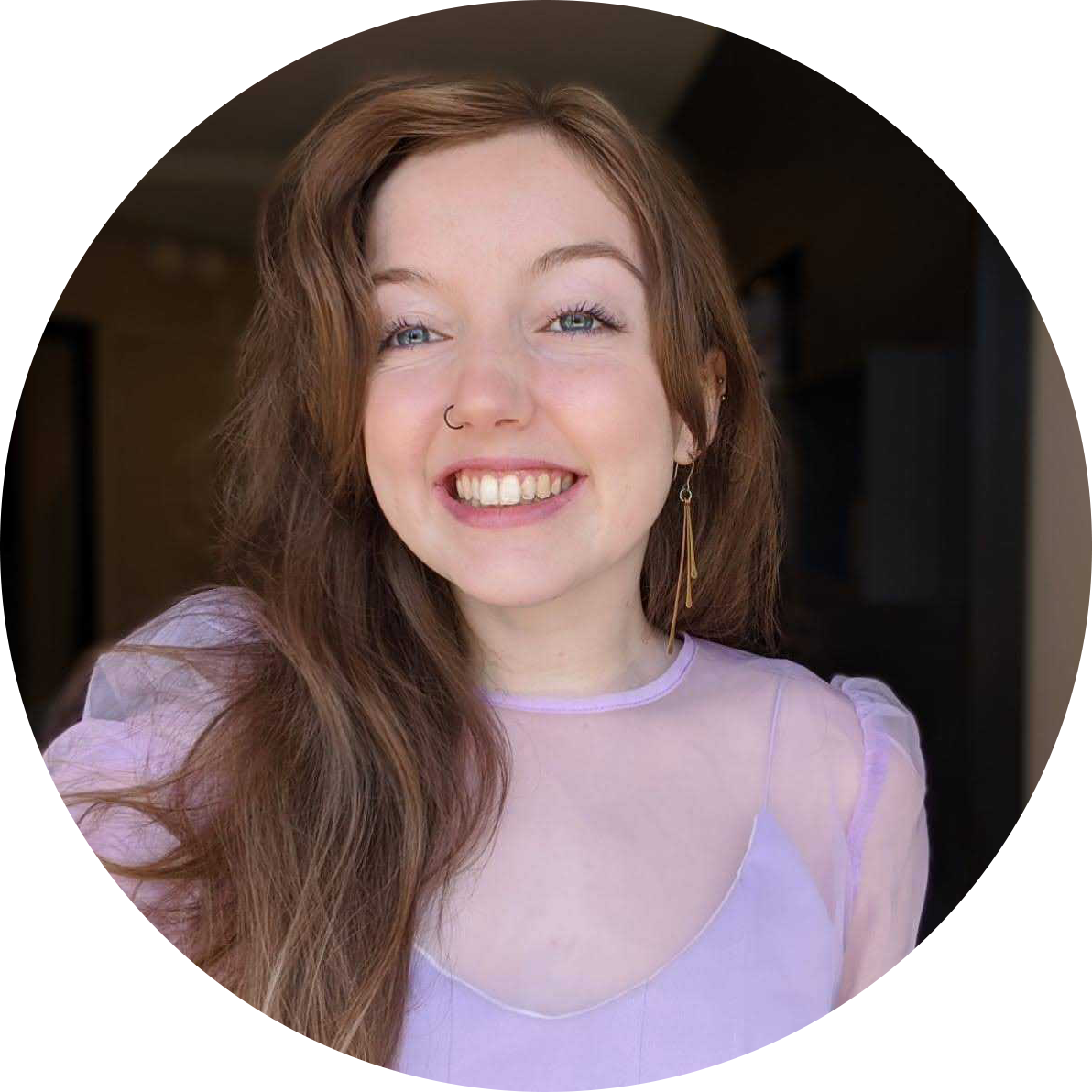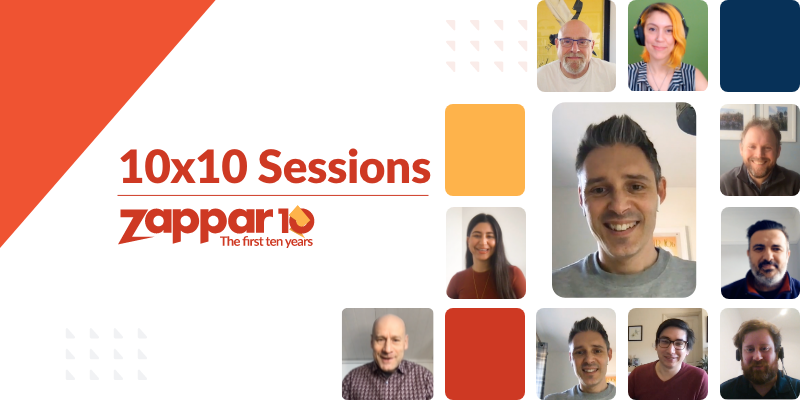For this 10x10 Session, the Co-Founder and CEO of Zappar (Caspar Thykier) is joined by Simon Windsor, the Co-Founder and Co-MD at Dimension.
They chat about:
- Volumetric capture and the potential for a metaverse
- How new technologies are driving an ever-improving user experience in AR
- What's coming in the next 10 years for the growing XR industry
The Conversation:
Caspar Thykier: Well for this session, I am joined by Simon Windsor, who is the Co-Founder and co-MD at Dimension, which is a world leading volumetric capture XR and virtual production studio who are genuinely re-imagining the future of entertainment, I would say. So welcome Simon. Perhaps you could give us the quick history of how you came to get involved in XR, and indeed a little bit about Dimension.
Simon Windsor: Hey, Caspar. Yeah. Thanks for inviting me today. Great to join you. Like you say I've been working in immersive and extended reality technologies and storytelling for the last 10 years.
I’m fascinated by the metaverse and the idea of the mixed reality future, the kind that sci-fi has long promised us. And back in 2010, I was part of the management team on a company which, at the time alongside Zappar, was one of the very first mobile AR platforms to pioneer many of the original 3D applications of AR.
And that really, for me, was the starting point of my journey in XR. It led to the co-founding of Hammerhead, in 2014, which was one of the very first pure play immersive content studios, where we brought together AR and some of the experimental storytelling opportunities in VR to build a studio really for the pursuit of immersive media and storytelling using those emerging technologies.
And as part of the challenges we faced in the early days we were interested not just in how you create rich, 3D experiences and worlds, but also how you solve some of the challenges around the human component. So in 2017 we launched a volumetric capture studio, which was the first Microsoft mixed reality capture studio licensee at a time globally to advance volumetric video making and volumetric capture to bring digital humans, and the next generation of digital humans, to life for those XR and AR worlds.
Last year we merged those two businesses, Hammerhead and Dimension, together, which has kind of formed the foundation for the company we have today, which is focused on a new breed of XR entertainment properties. And we now have four studios. We have one in London, one in Newcastle, one in Washington, DC, as part of the partnership with avatar dimension, and we have two mobile stages that they operate on film sets and production locations. It's been a real journey over the last 10 years, but that’s a quick potted history. If you like.
Caspar Thykier: Well, you really have been in the thick of it. And I mean, it's almost like you can't really start a conversation today I think in XR, without it leaning towards discussion about sort of the metaverse and meta-humans and volumetric capture indeed. And I guess, what are the things that you need to know as an agency or a brand or business, if you are considering getting into that type of spatial storytelling, are there any sort of classic do's and don'ts that you've learned?
Simon Windsor: That's a very good one. Well I suppose you know, today it's far easier for content creators and storytellers to, to start to adopt and play with AR or VR or mixed reality. Over the last 10 years, we’ve really seen some of the fundamental technologies mature. In fact, that's one of the big lessons, I suppose, for me over the last 10 years is the timing and technology maturity. You know, if we go back to 2010, when I first started playing in this space, we rode the first wave, if you like, of AR. In the first two years, the business created or powered about 3000 campaigns in AR.
So a lot of big brands, I mean, the same companies or indie developers were interested in using the technologies and trying to experiment and explore what AR was really about. But then they have a stumbling block, and it hit a bit of a cliff. You know, the technologies weren't quite there to enable the right level of consumer experience.
And of course back then we were talking about experiences that were running on a phone, and that was pretty much the most demanding thing you could ask of those mobile devices in terms of their capabilities and computers, right. Alongside that you had other challenges - the need for fiducial markers, user education, connectivity, speed of data and the fact that they required a native app.
Now, a lot of those things have started to disappear. Technology, as we know, evolves in cycles and the core technologies that are required to advance and solve of the challenges we had decades ago have really evolved and we've made huge advancements in this space. You think about computer vision, you've gone from marker-based to markless and spacial-tracking.
We live in a sensor-based world. Modern mobile devices enable us to scan our own spaces now. AR platforms have the tools to enable content creation for users, people who want to start experimenting with AR. They've matured, you know, things like real-time engines, Unity and Unreal engine, 3D content creation, they've advanced and alongside that, you've got things like the content delivery.
So the ability to deliver content over the cloud and via the web, they no longer need a native app to have a good AR experience. And I think alongside that, one of the real transitions, one of the evolutionary points is the growth of social media and the way in which social media has introduced AR, to begin with via AR filters, to the public and to consumers, and to enable that mass adoption.
So we're at a point today where we have the fundamental technologies and the complimentary technologies, which have started to intersect to unlock the right level of magic or the right level of capabilities to enable both content creators to get involved and to invest and to create content more easily and distribute it more easily, but also to enable richer experiences.
When we first started you and I on our journey into AR, we imagined where we would want to be and some of the types of experiences we ourselves would want to enjoy. And I think we are now at that tipping point where we're going from early stage nascent technologies into the next phase where we're going to start to see adoption grow.
And we're going to start see, over the next couple of years in particular, that the power of the underlying technologies really starts to advance what can be derived from and what we really mean by AR, and what it means for people and the content possibilities.
Caspar Thykier: Yeah, that's all very well put.
And I think the other exciting thing is some of the collaborations that you're getting involved with in the studio, from across the entertainment spectrum, be that music or film or TV or brands. It does seem like there are more people who want to explore this - would you say that's true of where you are at the moment?
Simon Windsor: Yeah, absolutely. So I think it's fair to say that the innovation and the creative capabilities and the advancements that the ecosystem is making collectively comes about through a lot of the collaboration, which happens. You know, we work closely with both our partners in terms of our customers.
But also we have partnerships with people like Microsoft or Digital Catapult that enabled our company to grow and to invest in building new production capabilities, our new tool sets, which help content creators and our customers start to adopt the content and work with it more easily, whether it's the ability to edit certain types of content like volumetric video or whether it's the ability to publish that medium into different channels.
I wanted to ensure that I've got the ability to take that content under multiple platforms and use it in the way, creatively, that I want - to ensure that I get the biggest bang for my buck, so to speak.
So we've worked hard on the publishing side to help the adoption of the technologies as well.
Caspar Thykier: Well, we’re almost coming up to time. So what excites you about this next stage then? You know, take the last decade out a bit. What is the next decade?
Simon Windsor: I think there's so much for us to be excited about, like you pointed out at the start of our conversation, the metaverse is coming. What really excites me is the growing convergence of the different technologies and the impact that this will have on AR and XR. So real-time engines and volumetric. That for me equates to VFX quality, AR content cloud streaming and 5G for the richer, faster AR content, computer vision, spatial anchors, and then you can add spatial audio into the mix.
And then you start thinking about context. That just scratches the surface of what creatively becomes possible with this medium. So alongside that, of course, you've got advances in the form factors, the eyewear or the headsets, which a lot of the large technology and consumer electronics brands are looking at, which of course will enable these experiences to happen in the real world around us. But I really think that the exciting part of this is that we are entering the Dawn of a new age for content and storytelling. The web is going 3D. You know, we're having this layer that's going to appear and live alongside our physical world.
And then if you look at the investments and the traction that's happening right now, there's big movements in this space. In fact, that is a great story.
But one of the biggest reasons to get excited for me is seeing how that's evolved. We've gone from eight, nine years ago where Facebook was barely dabbling in AR, to a point today where they've got 10,000 people supposedly working on it. And that's fantastically exciting for anyone who's working in the space.
Caspar Thykier: Yeah absolutely. Gosh, with that firepower, it could be exciting to see what happens next. I'm afraid that really is all we've got time for. Thank you so much for joining us and giving us some really invaluable insight. I think it's the world of virtual production and really the future of special storytelling. So really appreciate your time and can't wait to see what you guys produce next.
Simon Windsor: Thanks very much. Great to join you.
 Taylor Revert
Taylor RevertMarketing Manager, Zappar
